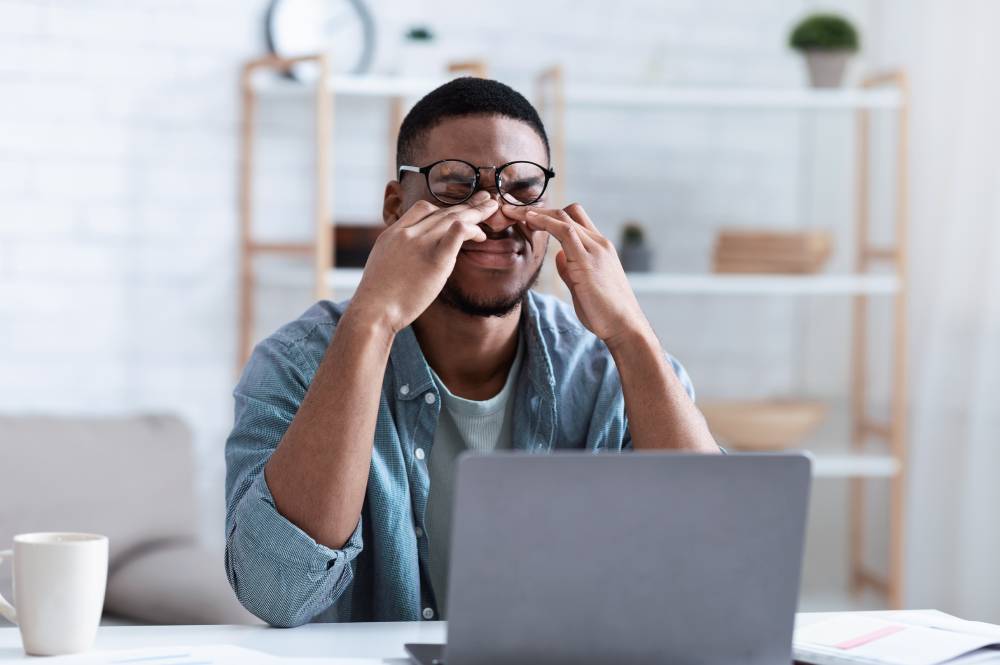Health
How You Can Protect Your Eyes From Computer Screen

Eye strain is a condition that is frequently associated with long-distance driving or staring at computer screens and other digital devices.
It usually happens when your eyes become tired from prolonged use, and it usually goes away on its own. The majority of the time, digital eye strain is more annoying than painful.
In some cases, however, eye strain can be a sign of an underlying eye condition that requires treatment.
Do your eyes become tired, dry, or strained after working on a computer or browsing on your phone for an extended period of time?
Then you’ve felt what so many others have felt: eye strain. Many people have been forced to work or take classes from home in the last year, resulting in increased screen time.
Understanding how to protect your eyes from computer screens can help you avoid the discomfort of eye strain.
Technology has enabled us to accomplish more in the digital age. However, after several hours of staring at a screen, your eyes may become watery, dry, sore, or itchy. This is because the light emitted by your computer or phone’s screen, specifically blue light, can strain your eyes.
Long-term studies have revealed that it can harm your retinal cells, potentially leading to age-related macular degeneration.
Most experts believe that screens do not cause permanent vision damage until more research is conducted. Digital eye strain headaches are a common symptom of excessive screen time eye strain.
Do you experience eye strain after a long day of staring at your digital devices? If so, you’re probably looking for a way to alleviate the symptoms of digital eye strain.
Here are some tips for protecting your eyes from computer and phone screens.
One of the most practical ways to protect eyes from computer screens is the 20/20/20 rule. It works like this, for every 20 minutes you spend staring at a screen, you must look at something at least 20 feet away for 20 seconds straight. This provides your eyes with a much-needed break. Feel free to adjust the amount of time you look away from a screen—the longer, the better.
Whether you’re working from home or at the office, make sure your surroundings are well-lit. It is actually better for your eyes to have less light in your room. Close curtains and use lower voltage bulbs to keep your work environment from being too bright.
A regular eye exam can help you get ahead of any eye conditions or problems from which you may suffer. It can also be a great opportunity to see if there are treatments out there for your specific eye issues. Talk with an expert today about your eye health.
When possible, using an anti-glare matte screen can help reduce the effect glare can have on your eyes. Glare from your computer or phone’s screen stops your eyes from making adjustments that they need for you to focus. If you wear glasses, make sure your lenses have an anti-reflective coating.
The typical screens you deal with today offer refresh rates of 75Hz or more. The higher the better. Furthermore, screens with higher resolutions appear more lifelike. When you can’t see the pixels, your eyes don’t work as hard to make sense of the images in front of you.
Send Us A Press Statement Advertise With Us Contact Us
And For More Nigerian News Visit GWG.NG

